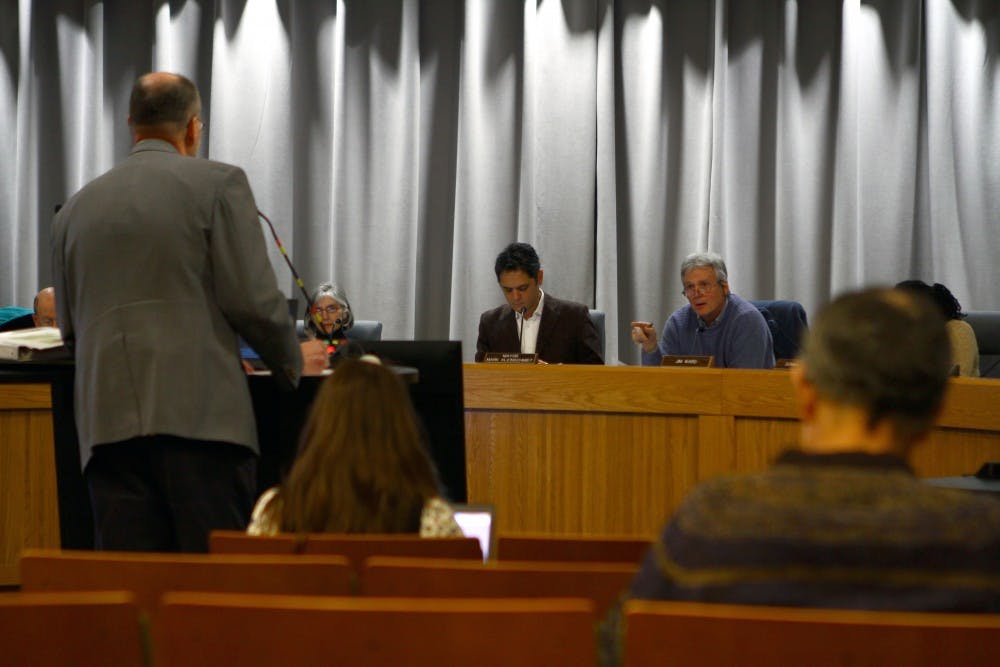At a Chapel Hill Town Council meeting Thursday night, Ken Pennoyer, business management director for the town, compared the original plan for the development to an alternative development plan that would make it as small as possible while still being economically viable.
“The minimum scenario represents the minimum necessary to make the project viable,” he said.
Pennoyer said the alternative plan consists of 680,000 square feet compared to the 1.5 million square feet in the original plan.
The cost of the development to the town for things like infrastructure is predicted to be lower in the alternative plan, which reduces residential units by 63 percent and square footage by 55 percent.
“The minimums proposed are not necessarily the range they will be in the final project,” said Ben Perry, project manager of East West Partners, the developer for the project. “Everything seems to hold up, especially with the fiscal analysis of the minimum.”
No matter which plan is chosen, providing public transit for the development will be a problem because the current transit tax could not fund additional buses and bus routes.
On Monday, the town council received a report on the state of Chapel Hill Transit from a consulting agency. The agency said Chapel Hill Transit would need to spend at least $45 million on purchasing new buses to update its outdated fleet. The report also said Chapel Hill Transit has an inadequate number of employees for the amount of services it provides.
“Chapel Hill Transit isn’t really seeking any new riders and can’t afford to,” Councilman Ed Harrison said.



